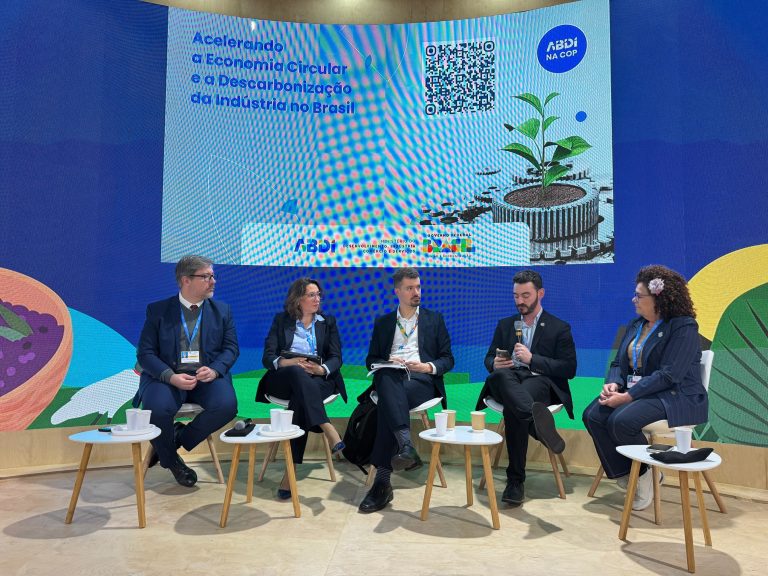At the United Nations Climate Change Conference (COP 29) in Azerbaijan, Itaipu Binacional’s Renewable Energy Superintendent, Rogério Meneghetti, took the spotlight at a key panel on “Accelerating Circular Economy and Industry Decarbonization in Brazil.” The event, held on Tuesday, November 12, focused on strategies for advancing sustainable practices and decarbonising industries in Brazil, with a special emphasis on how the circular economy can foster both environmental and economic benefits.
The panel was organised in collaboration with Brazil’s Ministry of Development, Industry, Commerce, and Services, alongside the Brazilian Agency for Industrial Development. The event aimed to explore how turning waste into new resources can enhance sustainability while bolstering the competitiveness of Brazil’s industries on the global stage.
Meneghetti shared valuable insights on Itaipu’s pioneering role in supporting the renewable energy sector, particularly in the development of biogas. “More than 15 years ago, when the projects were still in their early stages at universities, Itaipu was already implementing pilot projects in renewable energy generation and distribution,” Meneghetti said. His comments highlighted the long-term commitment of Itaipu to renewable energy, with the company actively contributing to the sector’s technical viability, economic incentives, and workforce development.
Itaipu’s efforts have played a crucial role in fostering innovation in Brazil’s renewable energy landscape. In particular, the company’s support for the establishment of the International Center for Renewable Energy (CIBiogás) has been central to advancing research and training in biogas production. Additionally, Meneghetti noted the company’s involvement in the founding of the Brazilian Biogas Association (ABiogás), which aims to promote biogas as a key component of the country’s energy mix.
Beyond Itaipu’s contributions, other Brazilian initiatives were also highlighted during the conference. The Recircula Brasil platform, which tracks plastic waste, and the National Circular Economy Strategy, which provides a framework for promoting circularity across various sectors, were discussed as key efforts in advancing sustainability. The Selo Verde Program, which encourages environmental certification for products and companies, was also spotlighted as a valuable tool in promoting eco-friendly practices within Brazil’s industrial landscape.
The COP 29 discussions underscored the growing importance of circular economy principles in decarbonising industries, with particular emphasis on integrating renewable energy solutions and waste reduction strategies. The exchange of ideas and experiences during the event is expected to contribute significantly to Brazil’s continued progress in building a more sustainable and competitive economy.
Itaipu’s participation in COP 29 further solidifies its position as a leader in renewable energy development in Brazil, showcasing the company’s ongoing efforts to support sustainable practices and drive innovation in the energy sector.


